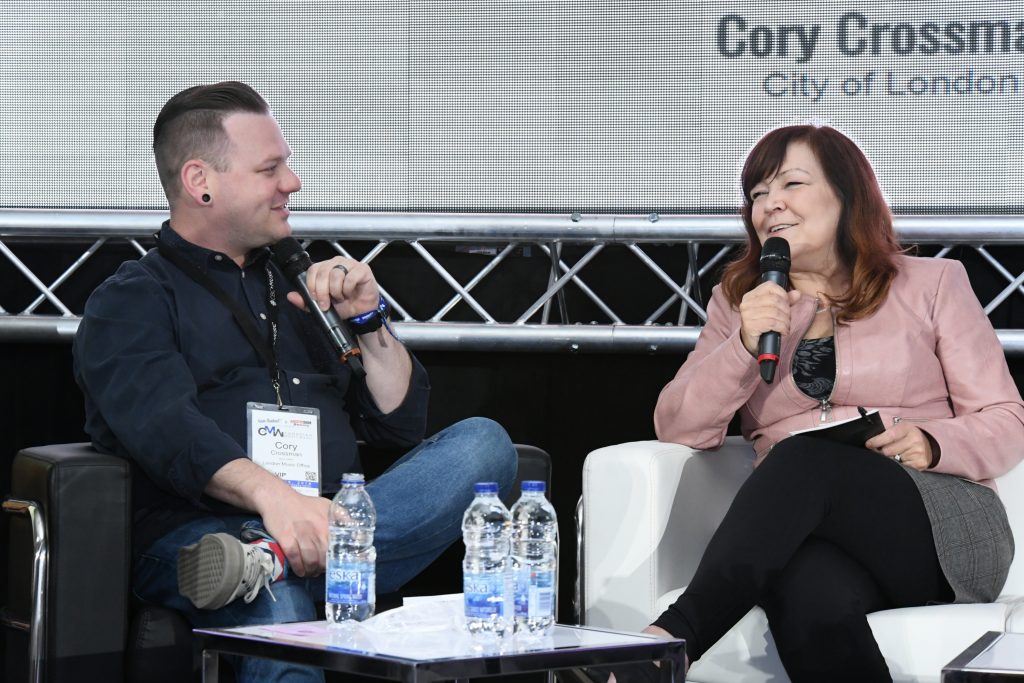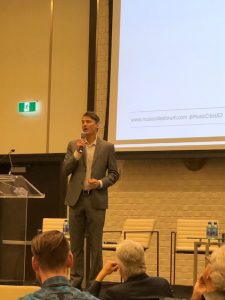The Toronto Music Advisory Council’s (TMAC) final meeting of the year took place on June 20th, 2018. Committee members discussed a variety of critical issues and developments, with the Working Groups providing progress updates on a number of their agenda items.
TMAC Co-Chairs City Councillor Josh Colle and Spencer Sutherland also presented a written summary of TMAC’s key milestones during the meeting, emphasizing the accomplishments that helped achieve the committee’s priority items.
Key highlights of the summary document are featured below.
Creating opportunities to support local musicians: major accomplishments include initiatives like Arts/Music in the Parks; the Toronto Music Directory; the YYZ Live series; and City Hall Live. Several pilot programs are still yet to be launched, as they are pending official Council approval. Some of the most notable include a pilot program regarding musician loading zones, tour bus parking, and an entertainment zone study.
Addressing regulatory burdens of music venues: this includes policies that aim to streamline regulations and permit processes or remove unnecessary bureaucratic hurdles for venues and spaces. One of the early major accomplishments was eliminating the enforcement against music venues for illegal postering in 2015. Additionally, TMAC has played an important role in the development of various ongoing noise bylaw-related initiatives at the City of Toronto, such as the development of a Terms of Reference for Noise Impact Studies for new developments within 120 metres of existing live music venues.
Measures to protect music venues: TMAC has long advocated for the development of policies that protect existing music venues, such as the establishment of a live music venue certification program and the proposed creation of tax benefits for local live venues.
However, one of TMAC’s major accomplishments was its role in endorsing the adoption of a version of the “Agent of Change” principle in Toronto. This principle has now been adopted and is a culmination of several recent decisions at City Hall.
Arising from PG29.4 TO Core: Downtown Plan Official Plan Amendment, the proposed measures are intended to encourage the retention of live music venues, by:
- Ensuring that live music venues can continue to function without noise-related impact on new residential development, meaning that:
- New live music venues located within Mixed Use Areas 1, 2, 3, 4 and Regeneration Areas will be designed and constructed to minimize noise from the premises and provide acoustic attenuation measures that would protect residential uses; and
- New mixed-use developments located within Mixed Use Areas 1, 2, 3, 4 and Regeneration Areas will be designed and constructed to include acoustic attenuation measures on-site, or within the building design, to mitigate noise levels from adjacent indoor live music venues and from outdoor live music venues.
- Requring an advisory to be implemented for newly developed residential units within 120 meters of a live music venue.
Supporting the development of a robust night-time economy: TMAC has advocated for the City of Toronto to take steps towards establishing measures to support live venues and other night-time operators. One of the major accomplishments is the implementation of an 18-month nightlife economy study, led by the Responsible Hospitality Institute.
Promoting Toronto internationally and fostering alliances with global music cities: notable accomplishments in this arena include the successful development of recurring initiatives, such as the Tale of Two Cities event series; an Austin-Toronto Music Business Summit that took place in 2016, with a new summit in development for late 2018; a series of SXSW activations between 2015 to 2018, and more.
The full summary document of TMAC’s accomplishments can be found here.





Music Canada